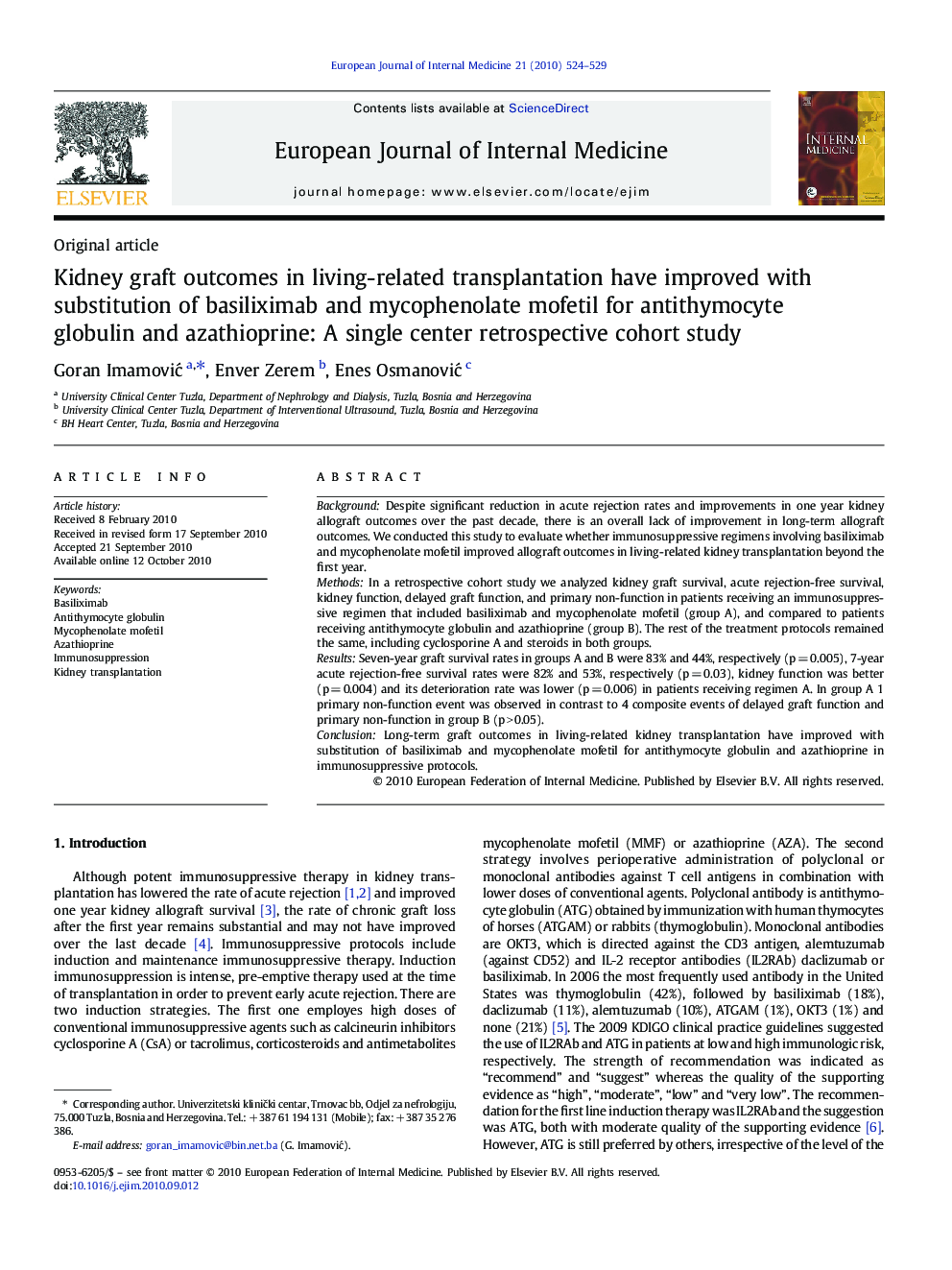| Article ID | Journal | Published Year | Pages | File Type |
|---|---|---|---|---|
| 3468146 | European Journal of Internal Medicine | 2010 | 6 Pages |
BackgroundDespite significant reduction in acute rejection rates and improvements in one year kidney allograft outcomes over the past decade, there is an overall lack of improvement in long-term allograft outcomes. We conducted this study to evaluate whether immunosuppressive regimens involving basiliximab and mycophenolate mofetil improved allograft outcomes in living-related kidney transplantation beyond the first year.MethodsIn a retrospective cohort study we analyzed kidney graft survival, acute rejection-free survival, kidney function, delayed graft function, and primary non-function in patients receiving an immunosuppressive regimen that included basiliximab and mycophenolate mofetil (group A), and compared to patients receiving antithymocyte globulin and azathioprine (group B). The rest of the treatment protocols remained the same, including cyclosporine A and steroids in both groups.ResultsSeven-year graft survival rates in groups A and B were 83% and 44%, respectively (p = 0.005), 7-year acute rejection-free survival rates were 82% and 53%, respectively (p = 0.03), kidney function was better (p = 0.004) and its deterioration rate was lower (p = 0.006) in patients receiving regimen A. In group A 1 primary non-function event was observed in contrast to 4 composite events of delayed graft function and primary non-function in group B (p > 0.05).ConclusionLong-term graft outcomes in living-related kidney transplantation have improved with substitution of basiliximab and mycophenolate mofetil for antithymocyte globulin and azathioprine in immunosuppressive protocols.
